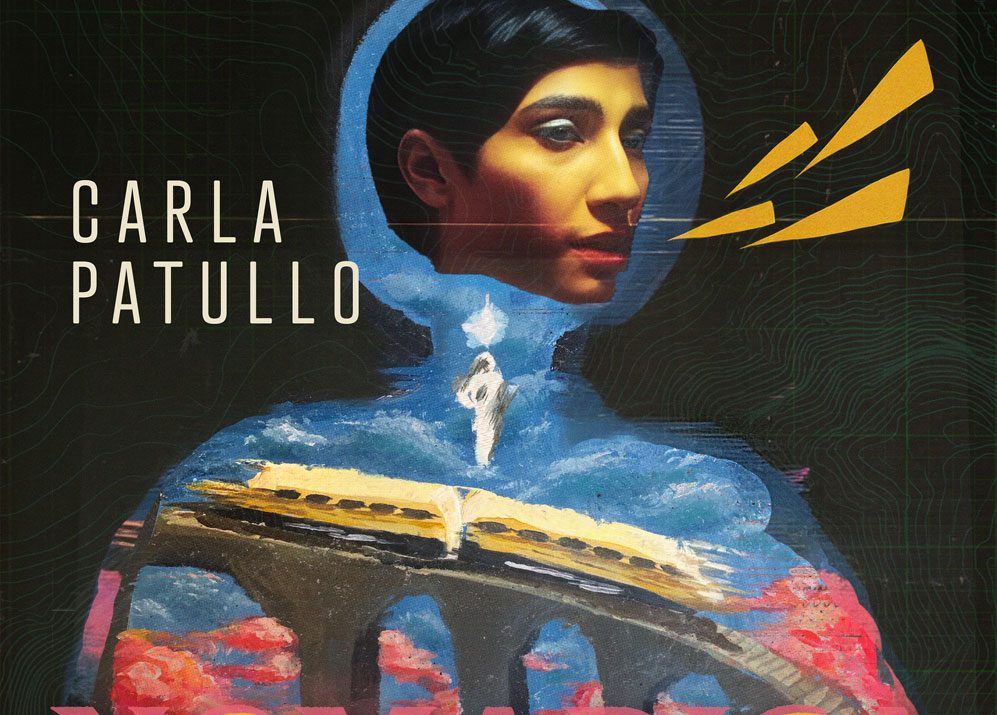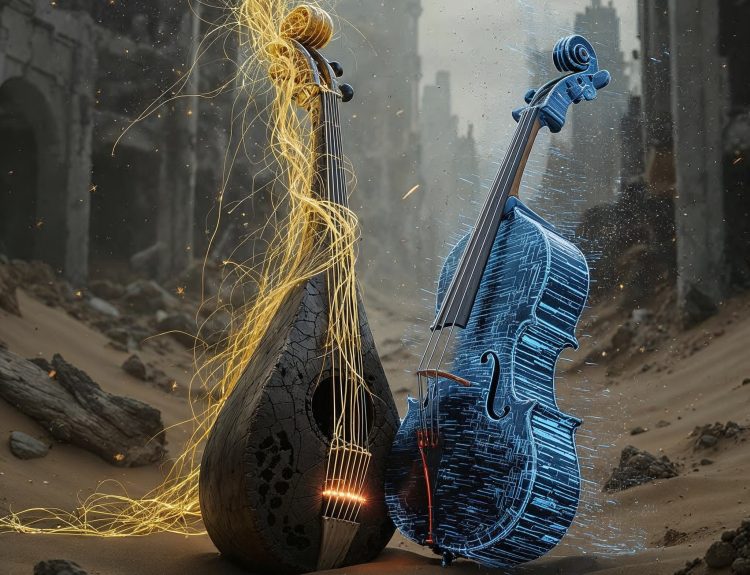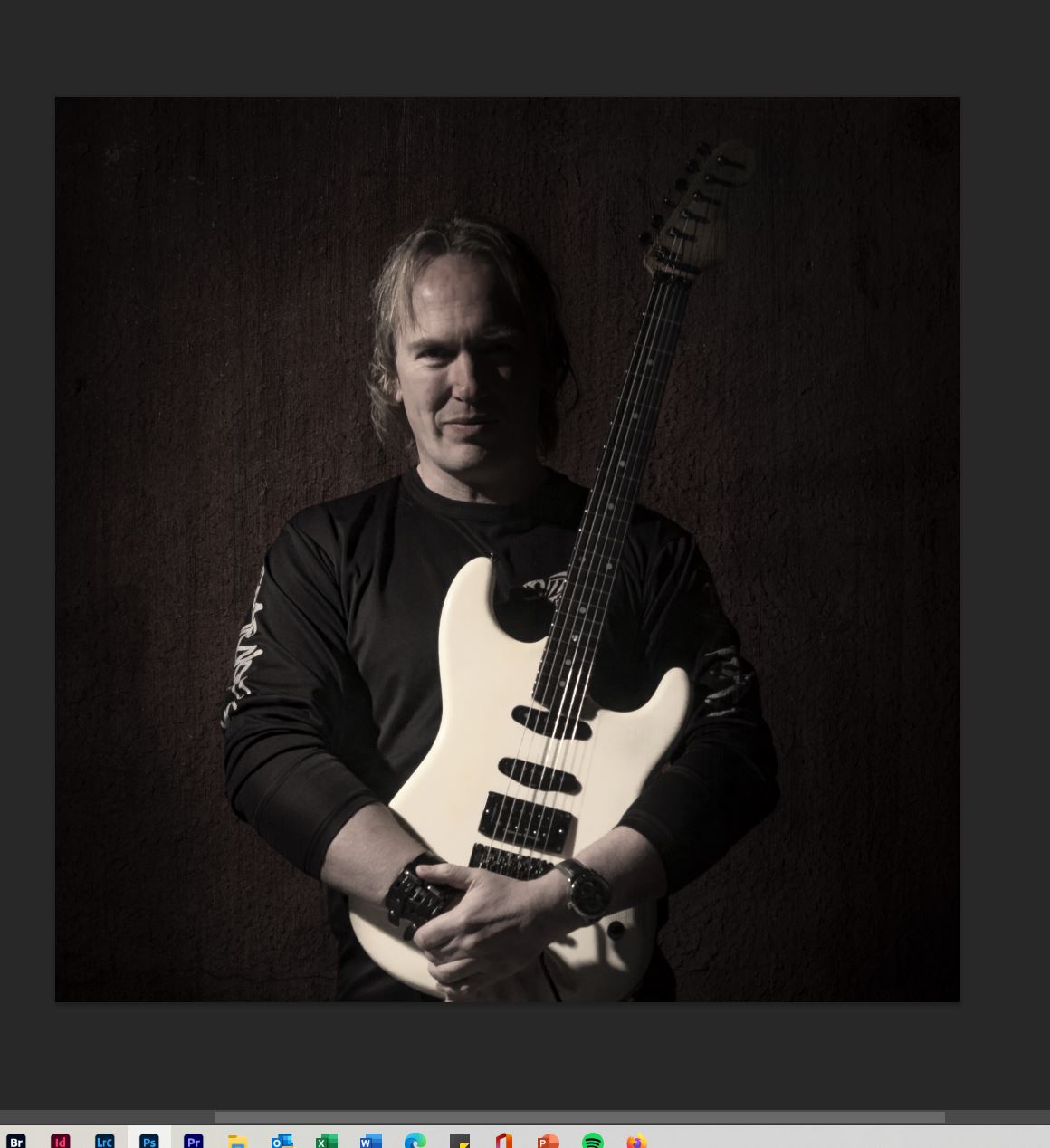Grief has a way of reshaping not just our lives, but also our art. For Los Angeles–based composer, vocalist, and multi-instrumentalist Carla Patullo, music has become compass and sanctuary. Known for her eclectic work spanning film scores, pop, and experimental projects, she has never shied away from emotional depth—but “Nomadica,” her latest instrumental album, is something else entirely. It is less an album and more a pilgrimage into the landscapes of memory: a realm where absence breathes, silence speaks, and music becomes the language of reconciliation.
Years after losing her mother in a tragic car accident, Patullo enters what she calls the dreamlike world of “Nomadica,” a liminal space between the living and the departed. Here, she seeks closure, conjures conversations that never happened, and ultimately discovers acceptance within the very echoes of grief. To bring this vision to life, she is joined by a constellation of talents: the incomparable Martha Wainwright, the GRAMMY Award-winning Scorchio Quartet (Lorenza Ponce, Frederika Krier, Leah Coloff, and Martha Mooke), and the choral majesty of Tonality, under the direction of Alexander Lloyd Blake. The result is a body of work that doesn’t just play; it breathes, weeps, and heals. Join me on the journey Through “Nomadica.”
“Our Love Is” opens the album with quiet intimacy and a gentle invitation into Patullo’s inner world. Strings shimmer like fragile memories, while her piano lines move with vulnerability. It feels like a whispered promise that love persists beyond death, setting the tone for the journey ahead.
The title track, “Nomadica”paints a portrait of wandering souls. Patullo’s delicate arrangements allow you to drift through shifting textures; strings that rise and recede like tides, and motifs that feel as though they’re half-remembered lullabies. It’s a meditation on impermanence, yet also on belonging.
In “Arrival” (feat. Lorenza Ponce, the Scorchio Quartet & Tonality), the music swells into something ceremonial. The layered strings of the Scorchio Quartet weave seamlessly with Tonality’s choral textures, creating a sense of entering sacred ground. The piece captures both the anxiety and awe of approaching reunion with something or someone lost.
As fragile and intricate as glass itself, “A Handblown World” (feat. Lorenza Ponce, the Scorchio Quartet & Tonality)” radiates delicacy. Each note feels intentional, each pause heavy with unspoken words. The interplay between strings and choir creates a sense of fragility held in reverence, as though Patullo is holding her mother’s memory in the palm of her hand.
A darker tide runs through “Undercurrent” (feat. Leah Coloff, the Scorchio Quartet & Tonality).” Brooding cello lines and layered harmonies suggest the weight of grief’s undertow, threatening to pull one deeper. Yet even here, beauty surfaces in fleeting moments of light—a reminder that grief, though heavy, can also be transformative.
“Isochronic Waves” (feat. Frederika Krier, the Scorchio Quartet & Tonality) pulses with subtle rhythmic energy, like waves of thought or memory rippling across consciousness. It’s hypnotic, immersive, and quietly powerful, offering a meditation on time, repetition, and healing.
True to its name, “Lightning” (feat. Martha Mooke, the Scorchio Quartet & Tonality) crackles with sudden bursts of energy. Patullo contrasts moments of stillness with flashes of intensity, mirroring the unpredictable sparks of memory that come without warning. The Scorchio Quartet heightens the drama, while Martha Mooke’s viola adds an otherworldly charge.
Here, Patullo sinks inward, exploring the unspoken depths of grief. “Below the Surface” is sparse, restrained, and haunting—almost as if silence itself becomes an instrument. It’s a reminder that beneath visible mourning lies an ocean of quiet longing.
The album closes with a stunning collaboration in “Fly Under” (with Martha Wainwright). Wainwright’s vocals soar with raw emotional honesty, lifting Patullo’s compositions into an ethereal finale. It’s not just a song—it feels like a conversation across realms, a daughter finally finding words with her mother. Hope glimmers through sorrow, leaving the listener with a sense of transcendence.
Patullo’s expertise lies in her ability to make instrumental music tell stories with the same potency as words. Her compositions are cinematic yet deeply personal, balancing intimacy with grandeur. Every performance feels intentional: the Scorchio Quartet bring warmth and gravitas; Tonality imbue tracks with celestial resonance; Wainwright’s guest turn provides raw vulnerability.
The production is crystalline, with layers that breathe rather than crowd. Each track feels like a carefully crafted space—sometimes cavernous, sometimes close as a whisper. Instruments are allowed their full color: strings resonate warmly, choral lines shimmer, and Patullo’s piano anchors everything with sincerity.
With “Nomadica,” Carla Patullo delivers an experience. It is a requiem, a dreamscape, a love letter, and a healing ritual all at once. Few artists dare to confront grief with such openness, and fewer still have the skill to translate that confrontation into music that feels universal and deeply personal. If you’re stepping into Patullo’s world for the first time: welcome. You’re not just listening to a record; you’re being invited into a space of remembrance and renewal. And in that space, you’ll find what Carla herself found—peace in the echoes, light in the silence, and love that lingers beyond loss.
Listen to the “Nomadica” album on Spotify
Follow Patullo here for more information






